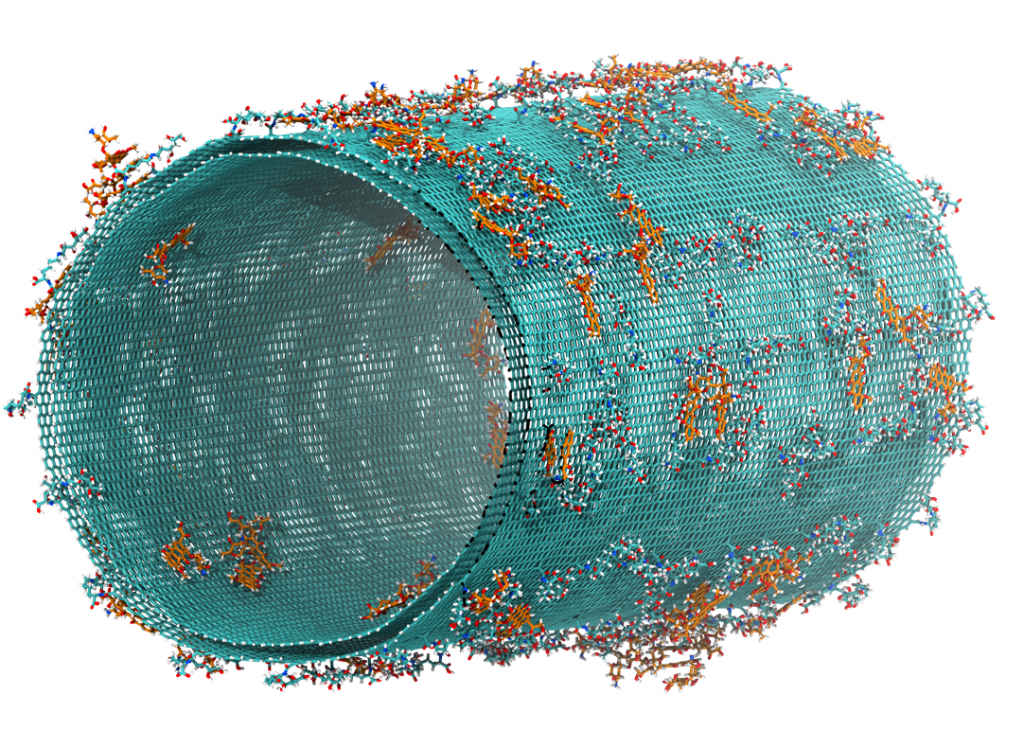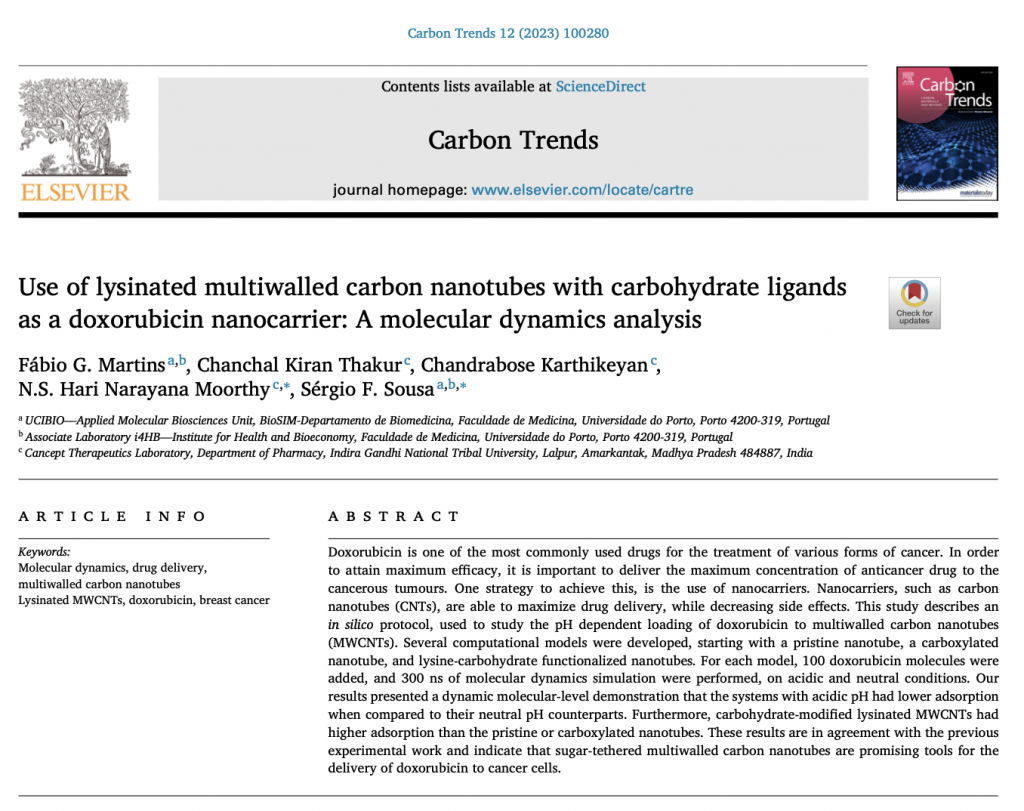Very happy to share our recent study in collaboration with researchers from the Indira Gandhi National Tribal University, Lalpur, Amarkantak, Madhya Pradesh, India. In this study we have applied molecular dynamics simulations to understand at the molecular level the interaction of lysinated multi walled carbon nanotubes with carbohydrate ligands as nanocarriers for drugs, using the anticancer drug doxorubicin as a model compound.
In particular, the protocol developed at BioSIM was able to explain the pH dependent loading of doxorubicin at neutral pH and its release at lower pH, as in cancer cells, provident atomic level details that could aid in the development of more sensitive drug carriers for targeted drug delivery and for drug optimization.

Use of lysinated multiwalled carbon nanotubes with carbohydrate ligands as a doxorubicin nanocarrier: A molecular dynamics analysis
Fábio G. Martins, Chanchal Kiran Thakur, Chandrabose Karthikeyan, N.S. Hari Narayana Moorthy, Sérgio F. Sousa
Carbon Trends (2023) | DOI: 10.1016/j.cartre.2023.100280
Abstract:
Doxorubicin is one of the most commonly used drugs for the treatment of various forms of cancer. In order to attain maximum efficacy, it is important to deliver the maximum concentration of anticancer drug to the cancerous tumours. One strategy to achieve this, is the use of nanocarriers. Nanocarriers, such as carbon nanotubes (CNTs), are able to maximize drug delivery, while decreasing side effects. This study describes an in silico protocol, used to study the pH dependent loading of doxorubicin to multiwalled carbon nanotubes (MWCNTs). Several computational models were developed, starting with a pristine nanotube, a carboxylated nanotube, and lysine-carbohydrate functionalized nanotubes. For each model, 100 doxorubicin molecules were added, and 300 ns of molecular dynamics simulation were performed, on acidic and neutral conditions. Our results presented a dynamic molecular-level demonstration that the systems with acidic pH had lower adsorption when compared to their neutral pH counterparts. Furthermore, carbohydrate-modified lysinated MWCNTs had higher adsorption than the pristine or carboxylated nanotubes. These results are in agreement with the previous experimental work and indicate that sugar-tethered multiwalled carbon nanotubes are promising tools for the delivery of doxorubicin to cancer cells.

